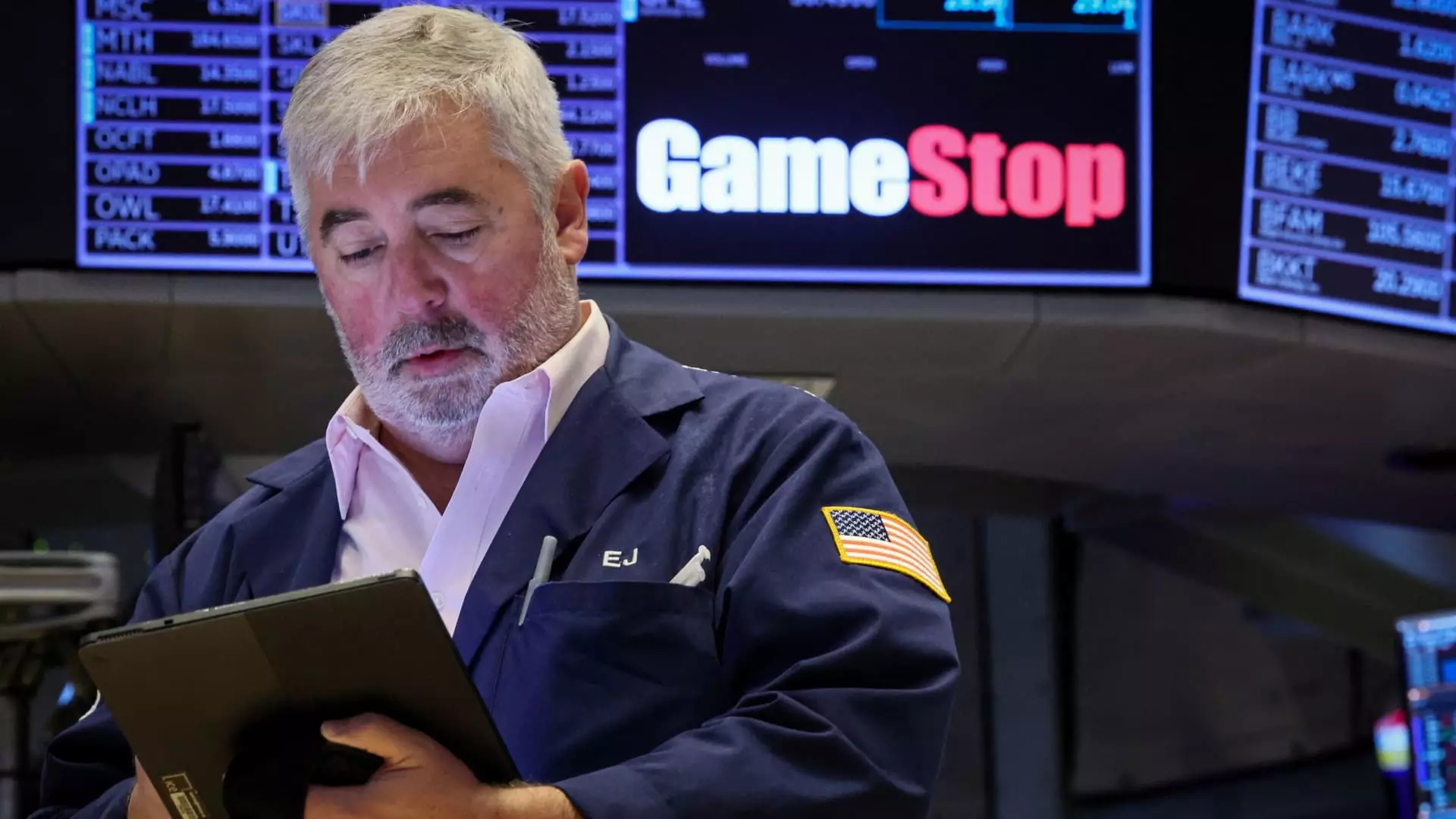Once heralded as the king of the meme stocks, GameStop’s recent attempt to entwine itself with the high-stakes world of Bitcoin comes with a heavy dose of skepticism. After a volatile trading session that featured a significant rally, the company’s stock took a sharp nosedive—plummeting over 9% in response to an ambitious plan to raise $1.3 billion through the sale of convertible senior notes. This foray into Bitcoin is significant not only due to the sheer scale of the monetary commitment but also because it reflects a profound misunderstanding of both the crypto landscape and the company’s traditional business model.
A Recipe for Disaster?
GameStop’s announcement sparked an immediate negative reaction from investors, suggesting that many are wary of the company’s strategy. In a landscape where the name “MicroStrategy” now carries the baggage of an infamous gamble, it raises the question: can GameStop genuinely expect a different outcome? The issuance of convertible notes due in 2030 may provide a temporary cash influx, but it also dilutes existing shares, releasing an additional 46 million, thereby antagonizing long-standing shareholders who are already navigating the volatility of the meme stock phenomenon.
The braintrust behind this decision seems to be betting on the sustained fervor of retail investors, as if the spirit of the GameStop stock surge could last another five years. Yet, shouldn’t this optimism raise some red flags? Even analysts like Michael Pachter express doubts about the scalability of GameStop’s strategy as they assess its inflated stock valuation hovering around $12.7 billion—an amount that dwarfs its cash reserves post-note issuance.
The Illusion of Stability?
What’s starkly apparent is that GameStop is navigating a precarious balance between the exhilarating highs of meme stocks and the sobering realities of traditional corporate finance. The allure of Bitcoin may initially seem like a path toward modernization, yet this move echoes a troubling trend of companies chasing after the latest trends in tech over solid business fundamentals. Pachter’s perspective highlights that unlike MicroStrategy, whose stock trades under two times the value of its Bitcoin assets, GameStop represents a stark contrast at more than double its cash holdings after the move.
This raises an uncomfortable inquiry: is GameStop attempting to pivot away from its core business into the realm of untested waters merely to appease a demographic craving for pizzazz rather than profitability? The disparity between a meme stock’s appreciation and the underlying asset value poses a risk that few are brave enough to confront.
The Perils of Trend-Chasing
In a climate where cryptocurrencies are heralded as revolutionary assets, GameStop’s pivot might allure some investors with dreams of a futuristic tech empire, yet this illusion could easily spiral into a nightmare. The volatility of the crypto market is notorious, and for a company already grappling with brand identity and long-term viability, this gamble could very well accelerate its downward spiral.
The stock market thrives on sentiment, and while the ‘meme stock’ culture gave GameStop a brief reprieve from its ailing retail business, it’s crucial for stakeholders to remain discerning. Would betting the farm on Bitcoin not only compromise the trust of investors but transform GameStop from a punk symbol of retail resistance into a cautionary tale of unchecked ambition? The stakes are high, and this time, the consequences could be monumental.

